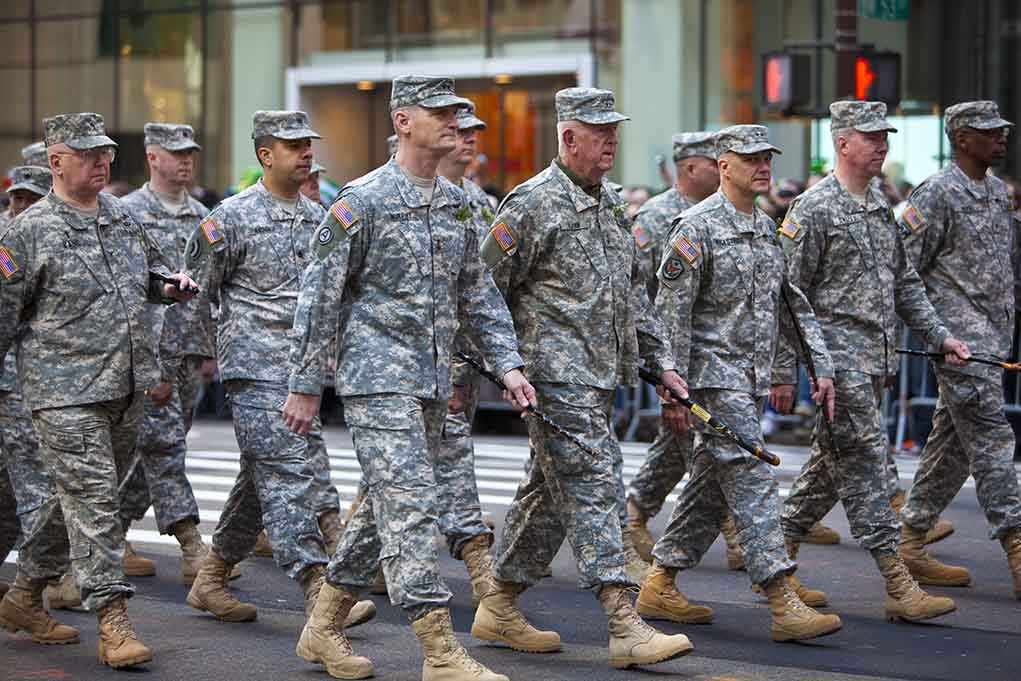
With new laws and executive orders slashing refugee protections, Afghan allies who once stood by American troops now face deportation to Taliban-controlled Afghanistan—sparking outrage from veterans and defenders of constitutional values.
Story Snapshot
- Trump administration’s 2025 policies slash Afghan refugee protections, escalating fears of deportation among US-based Afghans.
- Afghan refugees face loss of legal status, humanitarian relief, and basic rights amid a dramatic expansion in detention and enforcement.
- US military veterans, who served alongside Afghan allies, now fight to prevent their deportation, citing moral and strategic obligations.
- Afghans deported to Taliban-ruled Afghanistan risk persecution, violence, and death—especially women and minorities.
Trump Administration’s Immigration Crackdown Threatens Afghan Refugees
In 2025, the Trump administration moved rapidly to overhaul US immigration policy, enacting executive orders and new laws that have sharply reduced protections for Afghan refugees. Proclamations and the “One Big Beautiful Bill Act” ended or suspended most humanitarian parole, refugee admissions, and Temporary Protected Status for Afghans, dismantling lifelines established after the Taliban’s takeover. These changes, combined with a dramatic expansion of immigration detention, have left Afghan families reeling—stripped of legal status, access to aid, and due process. Fear and anxiety run high as many now face imminent deportation to one of the world’s most dangerous regimes.
Veterans’ groups, many comprised of US military personnel who fought in Afghanistan, have mobilized to support Afghan allies at risk of removal. These veterans argue that deporting Afghans who served as translators, guides, and partners in America’s longest war is both a moral and strategic betrayal. They highlight the life-threatening dangers these individuals and their families face under Taliban rule, where documented abuses against women, girls, and minorities have only intensified. Veterans now find themselves back in court—this time, fighting not against an enemy overseas, but for the safety and dignity of those who risked everything for the US mission.
Mass Deportation Policies and Constitutional Concerns
The administration’s new policies aim to deport one million immigrants annually, more than triple previous records, using expanded expedited removal, daily arrest quotas, and sweeping local-federal enforcement partnerships. The laws also strip benefits and legal protections from lawfully present immigrants, including Afghans, while funding a massive surge in detention facilities—even allowing for the indefinite detention of children and families. For constitutional conservatives, these measures raise questions about due process, states’ rights, and the erosion of America’s reputation as a beacon for the persecuted. Critics argue that punishing those who legally sought refuge undermines traditional American values of loyalty, family, and fair treatment under the law.
Many Afghan refugees now avoid public spaces, schools, and hospitals out of fear, with some losing access to basic nutrition and healthcare for their US-born children. Legal experts warn these policies put the US at odds with international commitments and create long-term economic and social fallout. Despite ongoing litigation, deportations and detentions continue, leaving Afghan families and their veteran advocates in a race against time to secure relief.
Human Rights Crisis: Dangers of Return to Taliban-Controlled Afghanistan
International agencies and human rights groups have condemned forced returns to Afghanistan, citing systematic persecution by the Taliban. Over 1.9 million Afghans have been forced back by neighboring countries in 2025 alone, facing violence, deprivation, and—especially for women—near-total loss of basic freedoms. US-based Afghans express terror at the prospect of joining them, with many having worked for the former Afghan government, international organizations, or directly with US forces. These groups are among the Taliban’s primary targets for reprisal, torture, or execution. The administration’s stance has triggered global criticism and deepened the trauma of Afghan communities already reeling from war and displacement.
Despite the outcry, the administration has shown little willingness to revisit its policies, instead doubling down on enforcement and detention. The resulting fear, fragmentation, and hardship reverberate not just through Afghan families, but also through the veteran and faith-based communities supporting them—raising fundamental questions about America’s commitments, values, and leadership in a dangerous world.
As Congress and the courts continue to debate the limits of executive power and due process, veterans and advocates vow to keep fighting for their Afghan allies—insisting that America’s honor, and its founding principles, are at stake.
Sources:
UN experts appalled by mass forced returns of Afghan nationals
4 years after Taliban seized Kabul, millions of Afghans are back in the country
Afghan refugees in California face new threats as Trump administration tightens rules




